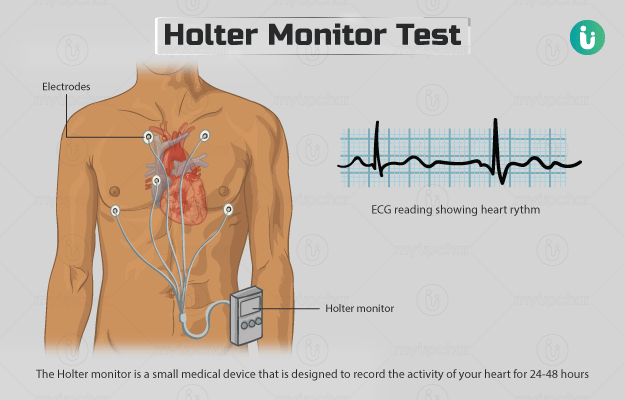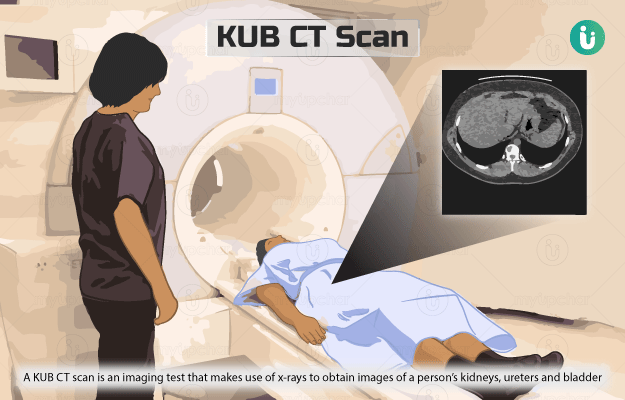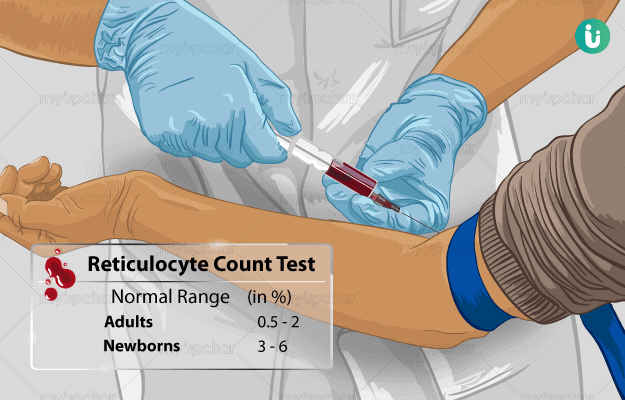What is the Holter Monitor test?
The Holter monitor is a small medical device (about the size of a small camera) that is designed to record the activity of your heart (electrocardiogram or ECG) for 24-48 hours. This recording is done while you are going about your daily routine. The Holter monitor consists of a digital recorder and five to seven electrodes. The device operates on a battery and is portable.
The electrodes (small, sticky and plastic patches) are placed over certain areas of your abdomen and chest. They are connected to the machine with the help of wires.
The machine records electrical impulses that coordinate with your heart contractions (which enable your heart to keep on circulating the blood properly). It gives information about the heart activity such as the rhythm of the heartbeat, how fast the heart is beating or the strength and timing of the impulses generated by the heart.
























